As a leading railway technology company, we therefore carry a great responsibility towards the environment, resources, and future generations. We are acutely aware of this and are committed to advancing railways with all our knowledge and diverse services in line with our vision motto: Enabling Future Mobility! Thus we make a significant contribution with our services and innovations to make rail as the most sustainable mode of transport for people and goods even more competitive. This motivates and drives us.
We at Rhomberg Sersa Rail Group view and monitor sustainability in all its facets and at all levels. But monitoring is not enough. We are taking targeted steps in our daily activities to progressively minimise our greenhouse gas emissions and move towards net zero. This includes using low-CO2 alternatives like electrified equipment at our construction sites, electrifying our vehicle fleet, switching to renewable energy at our locations, or changing from diesel to Hydrotreated Vegetable Oil (HVO) for track construction machinery. We are also aware that sustainability goes beyond environmental protection.
Double materiality assessment
RSRG has conducted a double materiality assessment in accordance with the EU Directive on non-financial reporting (CSRD). This involved identifying opportunities and risks in the area of sustainability and specifying topics in order to develop a sustainability strategy.
As part of this analysis, internal workshops were held and a comprehensive stakeholder survey was conducted in which employees, customers, suppliers and other interest groups were asked for their opinions on the most important sustainability issues. In this way, RSRG aims to ensure that not only the internal perspective is taken into account, but also the opinions of its stakeholders and interested parties.
The results of this analysis are presented below, showing all the key topics that are therefore subject to reporting requirements. The weighting of relevance ranges from internal (low relevance) to external (high relevance).
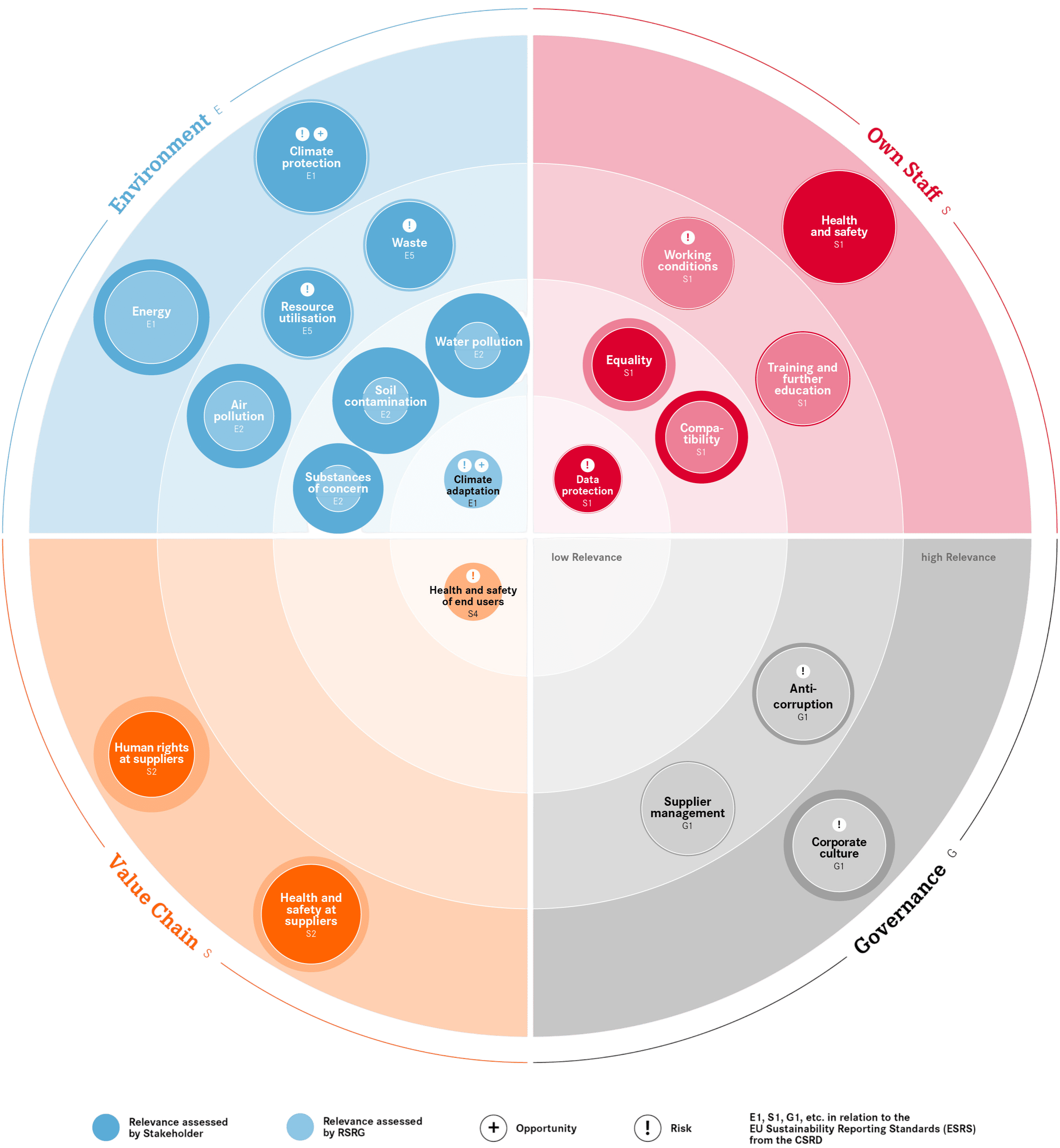
RSRG has subsequently positioned itself comprehensively to strategically develop the key topics, strengthen the area of sustainability and create transparency.
These topics are defined in the sustainability vision via key focus areas.
Our vision for sustainability represents an ideal, a shining goal that we may never fully achieve, but one that gives us a clear direction. It is our dream of a company that is at the forefront of environmental protection and social justice – a quest for a greener and fairer world that drives us every day. At the same time, we need stimulating market conditions, pioneering technological developments with partners and modern customers who are willing to invest in resource-efficient solutions. The following priorities are the focus of the entire Rhomberg Sersa Rail Group and are the drivers of our vision ‘#railtozero’:
The RSRG Climate Strategy
Both the Paris Agreement (2015) and the EU Green Deal (2019) pursue the overarching goal of combating climate crisis and accelerating the transformation to a sustainable, low-carbon economy.
The Paris Agreement aims to keep global warming well below 2 degrees Celsius compared to pre-industrial levels and to strive to limit the warming to 1.5 degrees Celsius.
The EU's goal is to make Europe the first “climate-neutral” continent by 2050.
In line with legislation, politics, and our customers, at RSRG we are making a concrete contribution and have therefore developed a climate strategy to achieve the net-zero goal by 2050. All markets have been included in this strategy, and each market is individually measured on this journey. As part of this process (according to the GHG Protocol), we will annually review our climate strategy.
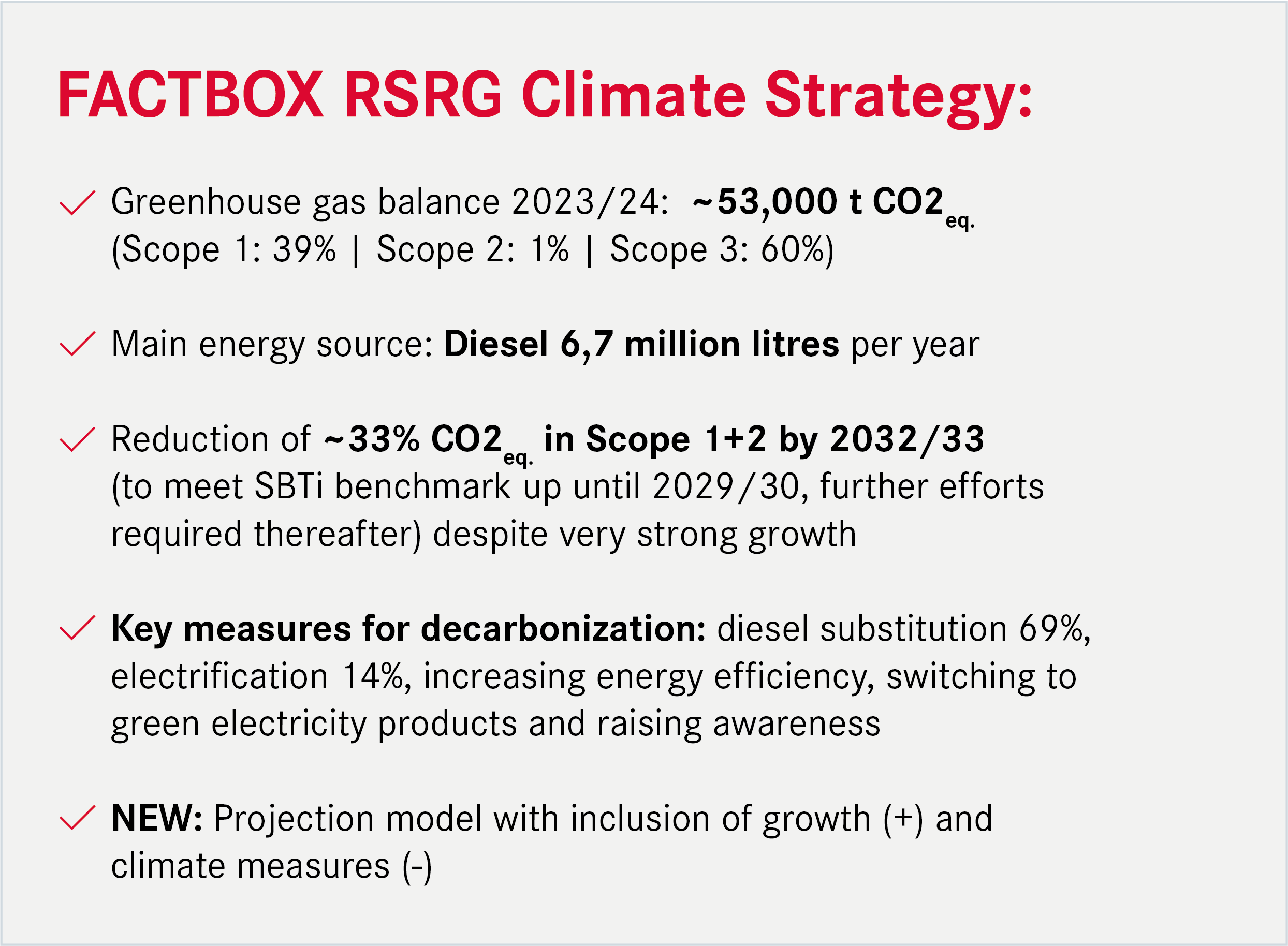
The RSRG Greenhouse Gas Balance 2023/24: ~53'000 t CO2
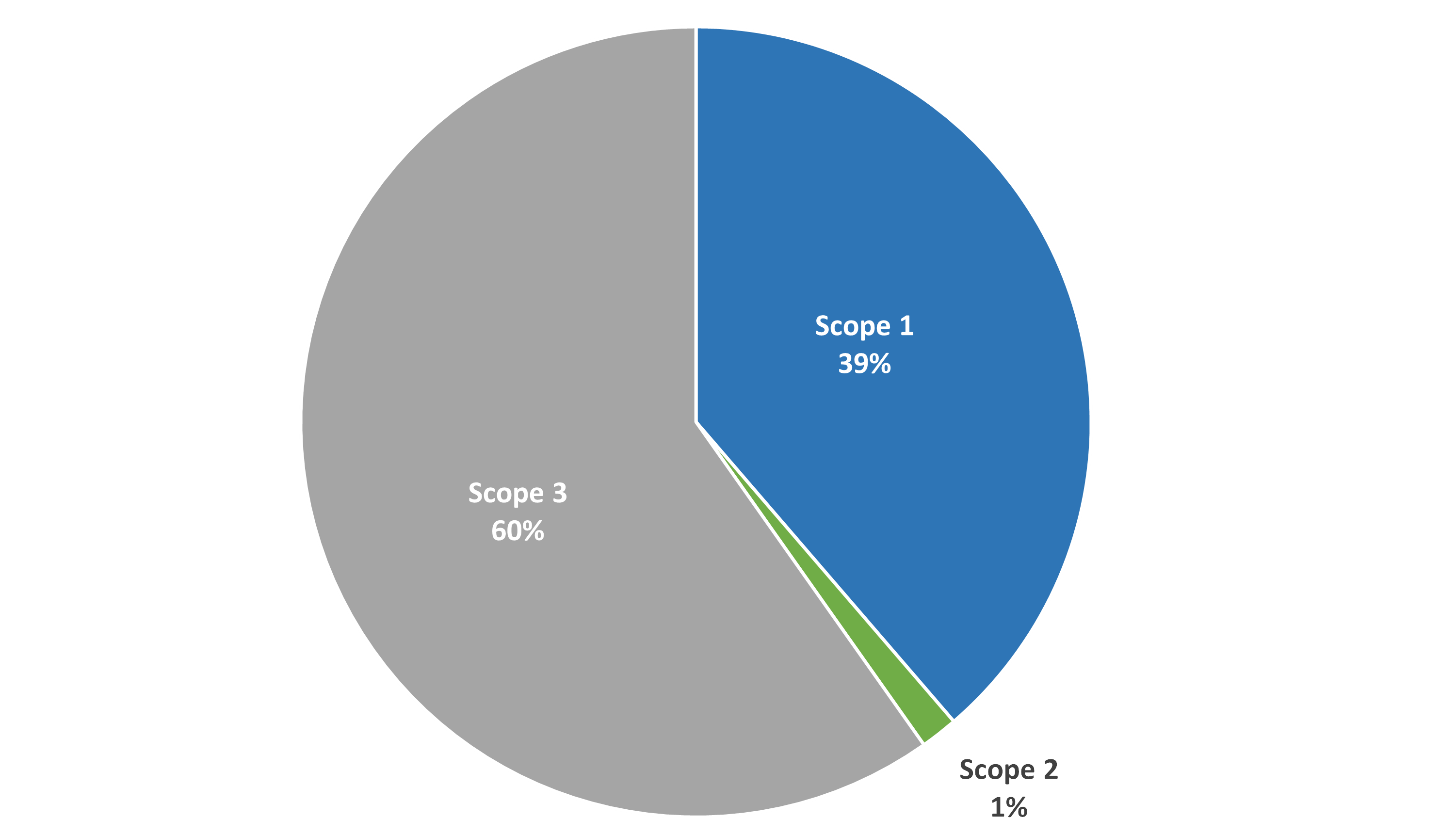
Scope 1 covers the direct emissions from the company (e.g., combustion of fuels).
Scope 2 covers emissions from the generation of energy that RSRG purchases and uses (in the form of electricity or heat).
Scope 3 covers other indirect emissions that occur due to RSRG's activities within the upstream or downstream value chain (i.e., at suppliers or customers). The CO2 reduction path until 2032 according to Scope
Actual development of greenhouse gas emissions (until 2023/24) and projection taking into account measures & growth (until 2033/34)
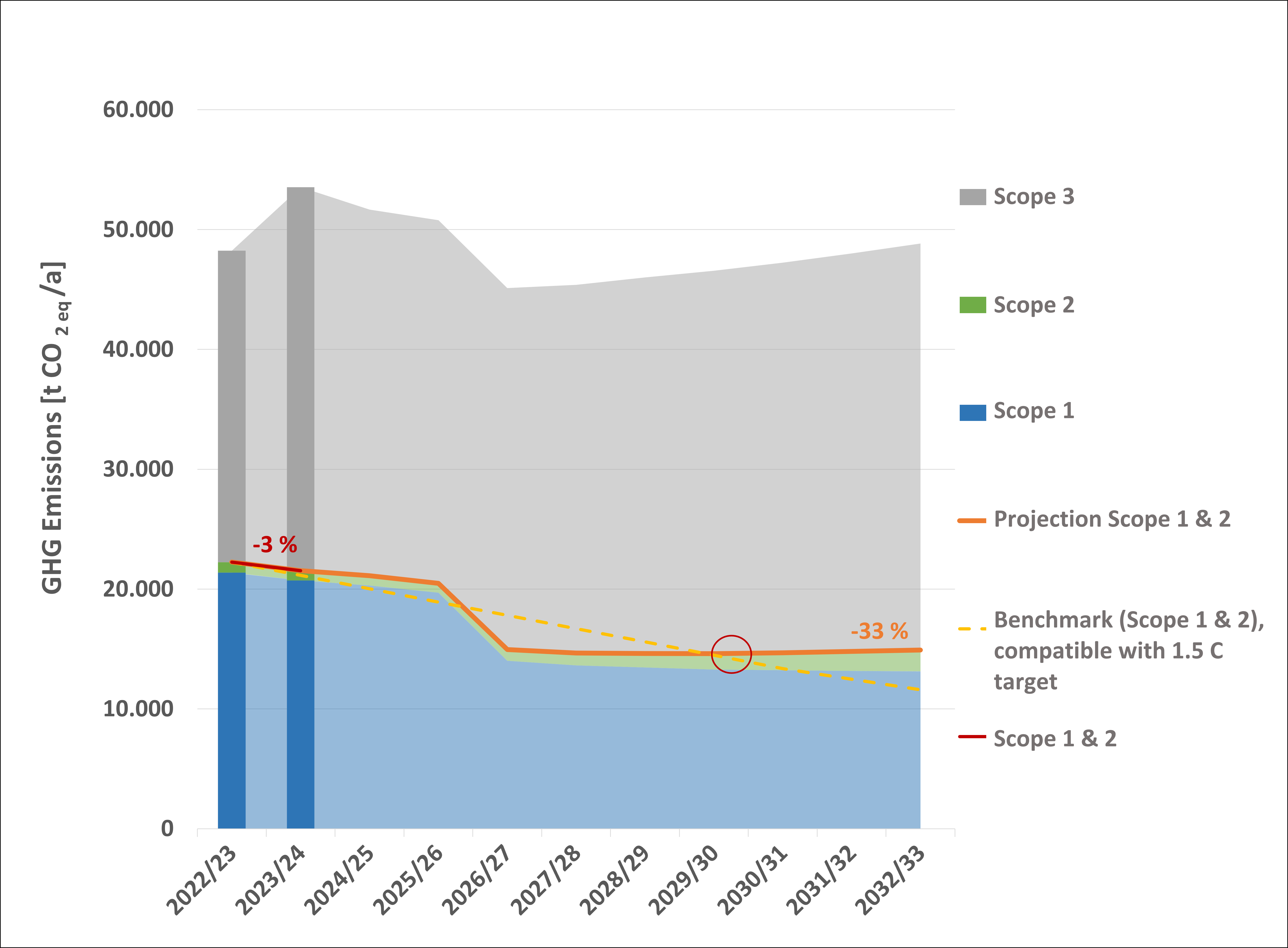
1 The Science Based Targets Initiative (SBTi) enables companies to set net-zero targets that are based on the latest findings of climate science, thus contributing to achieving the goals of the Paris Climate Agreement.
Note: Climate gas emissions, also referred to as greenhouse gas emissions, are expressed as CO2 equivalents (CO2eq).
Reduction measures and initiatives
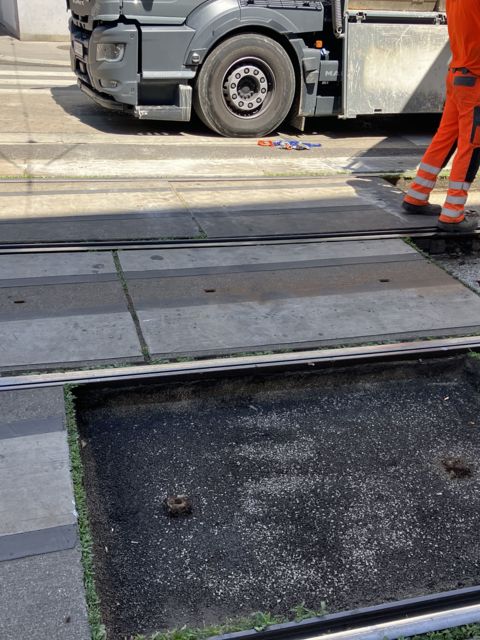
Resource conservation through the reuse of large-surface slabs.
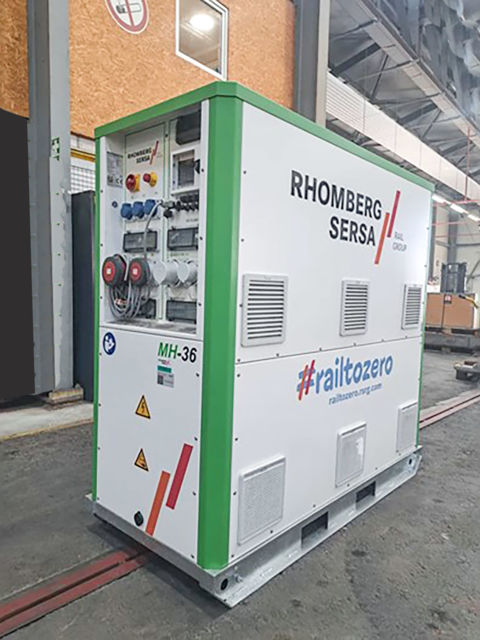
Knowledge Exchange Among Various RSRG Departments.
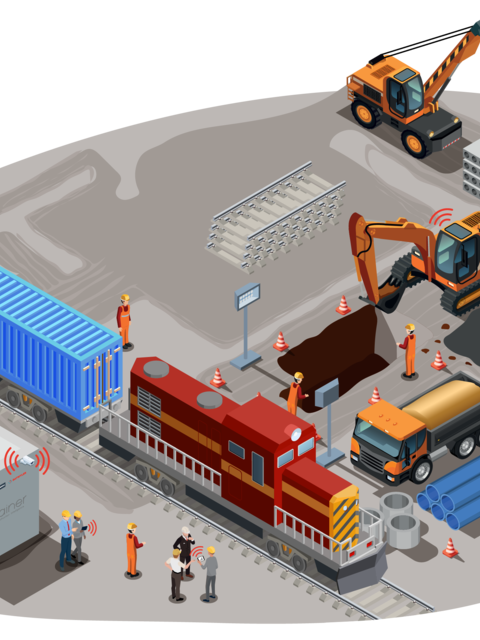
The Q-tainer Provides Computing Power for the “Transparent Construction Site”.
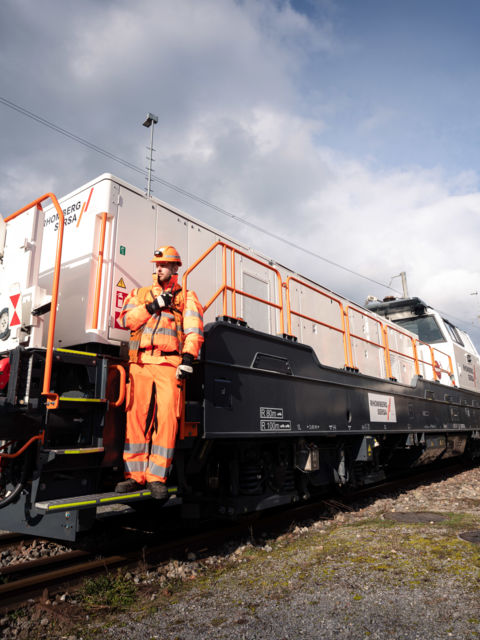
Since December 2022, the latest H4 locomotives have been in operation for RSRG.
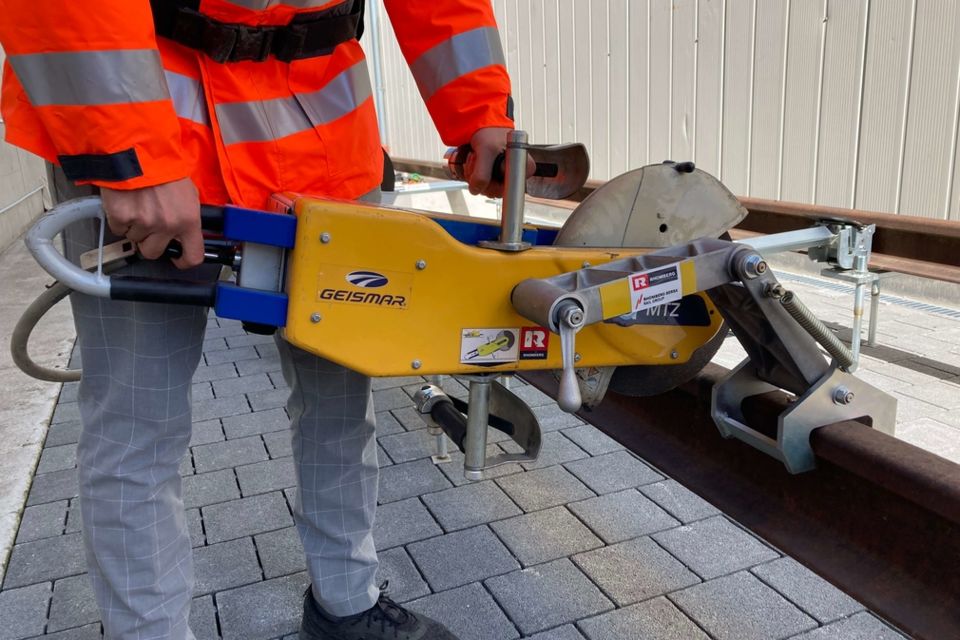
RSRG is switching to power-driven hand tools.
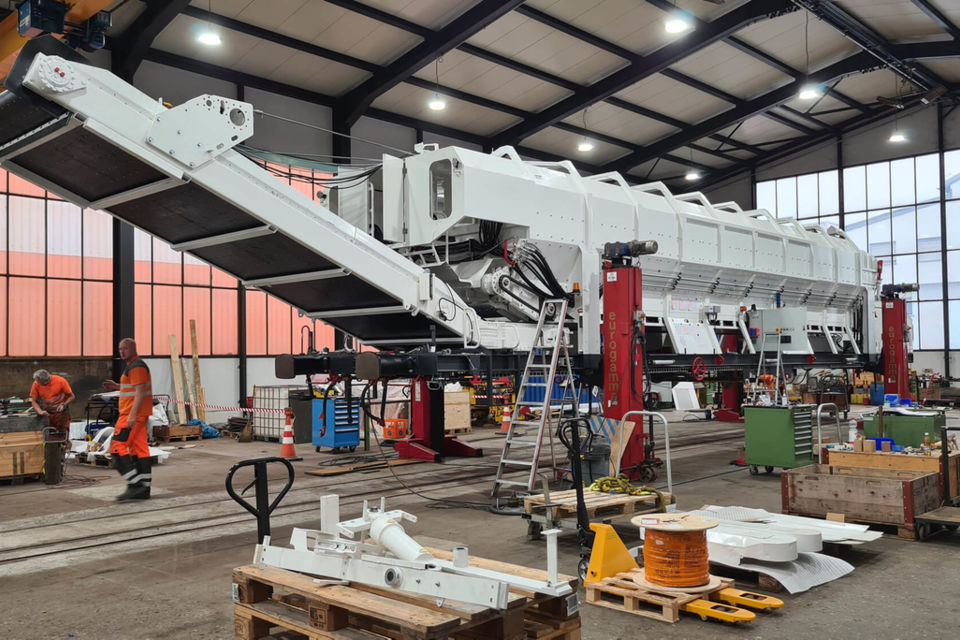
Sustainable update for RSRG's material conveyor and silo units.
Integrated Management System
We operate an integrated management system that enables us to implement the goal of continuous improvement in practice. We place particular focus on the areas of corporate governance, process management, environmental protection, occupational safety, and compliance.
ISO 9001
In the development and expansion of infrastructure, it is not always easy to concretely demonstrate the quality of individual products. Our quality management system according to ISO 9001 helps us to structure the processes and operations of our company, to constantly reconsider them and thus ensure a consistent quality of our projects.
ISO 14001
Especially in the development and expansion of infrastructure, large amounts of raw materials are used and ecosystems are affected. With the introduction of the environmental management system according to ISO 14001, we have made the identification and implementation of environmental protection potentials an integral part of our corporate culture.
ISO 37301
Our compliance management system according to ISO 37301 helps us to identify and control compliance risks. Through clear structures and regular training, we ensure compliance with laws and regulations. Transparent documentation and continuous improvement are integral parts of our system.
ISO 45001
We ensure health-promoting working conditions, thereby enhancing the fitness and well-being of our employees and clients. Every employee should feel responsible for their own health and safety and that of the people in their immediate work environment.
EcoVadis
To ensure that our efforts and achievements are subject to objective review, we have our sustainability performance assessed annually by EcoVadis. The assessment covers 21 criteria in four areas: environment, labour and human rights, ethics and sustainable procurement.
All RSRG companies (except those in North America) have already been assessed by EcoVadis with the following results:
















